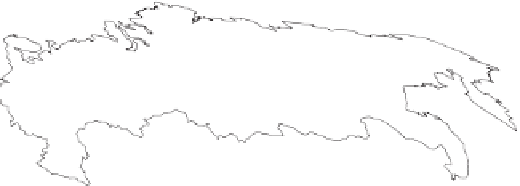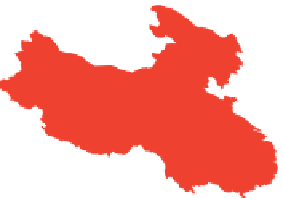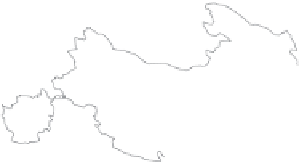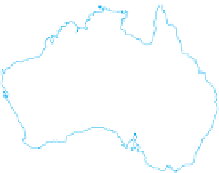Geography Reference
In-Depth Information
GREENLAND
Arctic Circle
FINLAND
ICELAND
RUSSIA
NORWAY
60
°
60
°
SWEDEN
ESTONIA
LATVIA
LITHUANIA
BELARUS
UKRAINE
MOLDOVA
UNITED KINGDOM
DENMARK
IRELAND
NETH.
POLAND
GER.
BELG.
LUX.
CZ. REP.
AUST.
ATLANTIC
OCEAN
SLVK.
KAZAKHSTAN
SWITZ.
HUNG.
MONGOLIA
ROM.
FRANCE
SLOV.
SERB.
CROATIA
UZBEKISTAN
BULG.
BOSNIA
MONT.
KOSOVO
GEORGIA
KYRGYZSTAN
N.
KOREA
S.
KOREA
SPAIN
40
°
MACE.
40
°
ARMENIA
PORTUGAL
JAPAN
TAJIKISTAN
ITALY
TURKMENISTAN
GREECE
TURKEY
AZERBAIJAN
ALB.
CHINA
SYRIA
CYPRUS
TUNISIA
AFGHANISTAN
LEBANON
IRAQ
MOROCCO
IRAN
KUWAIT
PACIFIC
JORDAN
BHUTAN
ISRAEL
PAKISTAN
NEPAL
ALGERIA
LIBYA
WESTERN
SAHARA
BAHRAIN
EGYPT
QATAR
BANGLADESH
TAIWAN
U.A.E.
Tropic of Cancer
SAUDI
ARABIA
MYANMAR
(BURMA)
INDIA
20
°
CAPE
VERDE
OMAN
MAURITANIA
LAOS
MALI
NIGER
VIETNAM
ERITREA
OCEAN
CHAD
YEMEN
SENEGAL
GAMBIA
SUDAN
THAILAND
PHILIPPINES
BURKINA
FASO
CAMBODIA
DJIBOUTI
GUINEA-BISSAU
GUINEA
SIERRA LEONE
NIGERIA
SRI LANKA
ETHIOPIA
IVORY
COAST
SOUTH
SUDAN
CENTRAL
AFRICAN REP.
BRUNEI
LIBERIA
CAMEROON
SOMALIA
INDIAN
TOGO
MALAYSIA
GHANA
BENIN
UGANDA
KENYA
SÃO TOMÉ & PRINCIPE
CONGO
Equator
0
°
RWANDA
SINGAPORE
GABON
EQUATORIAL
GUINEA
THE
CONGO
OCEAN
BURUNDI
PAPUA
NEW
GUINEA
SOLOMON
ISLANDS
INDONESIA
TANZANIA
COMOROS
ATLANTIC
E. TIMOR
ANGOLA
MALAWI
ZAMBIA
VANUATU
FIJI
MOZAMBIQUE
MADAGASCAR
ZIMBABWE
MAURITIUS
20
°
20
°
20
°
20
°
20
°
NAMIBIA
NEW
CALEDONIA
BOTSWANA
Tropic of Capricorn
AUSTRALIA
OCEAN
SWAZILAND
SOUTH
AFRICA
LESOTHO
NEW
ZEALAND
40
°
40
°
40
°
0
°
20
°
40
°
140
°
160
°
60
°
100
°
120
°
60
°
60
°
SOUTHERN
OCEAN
Antarctic Circle
cities, living the lives of businesspeople (visiting air-
ports, offi ce buildings, and hotels), or staying in luxuri-
ous resorts (separated from the “local”) as tourists. How,
then, can a person have a global identity if he or she has
not experienced the globe?
Globalization networks link us with other people and
places, and the fl ow of information technology is a daily
way in which we are interlinked with the globe. A person
may be overwhelmed by the fl ow of information and choose
to ignore it, but even such a person has a global identity.
People identify themselves by identifying with or against
others at local, regional, and global scales. As the fl ow of
information continues, many people feel a need to make
sense of the world by identifying with people and places.
People personalize the fl ow of information, and in so doing
they feel more connected to the globe and alter their local
cultural landscapes to refl ect their feeling of connectedness.
In 1995,
National Geographic
discussed the future of
the digital age and argued that as a result of technologi-
cal advances and the Internet, people were interacting in
person less. However, the author also claimed that people
would continue to have “a need for skin,” a desire to inter-
act with other humans in person. As evidence, the author
cited how busy a mall is when the people in the mall could
just as easily be ordering all of their purchases from home
on the Internet.






























































































































































































































































































































































































































































































































































































































































































































































































































